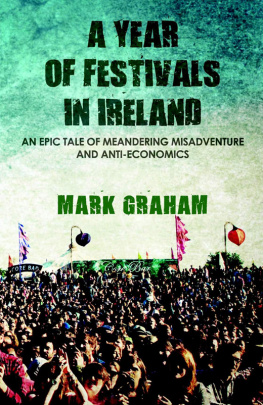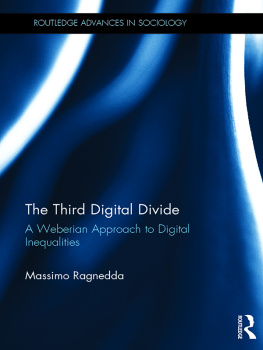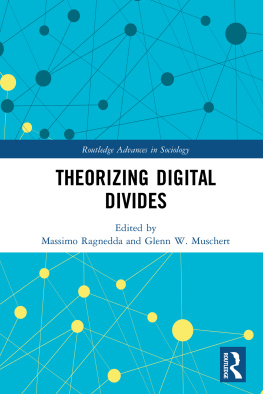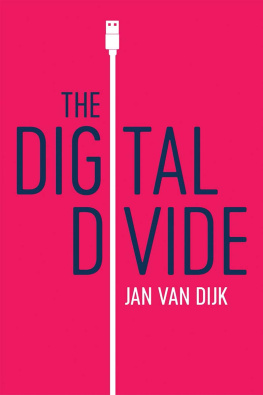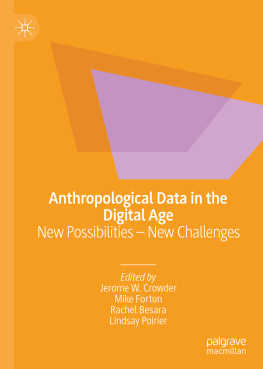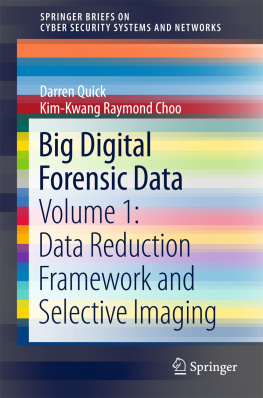
Geographies of Digital Exclusion
Conceptually rich and well-illustrated, this is a valuable analysis of data power at the global scale.
Professor Rob Kitchin, Maynooth University
An enlightening and accessible introduction to digital geographies and why they are important to our understanding of digital exclusion.
Alex Singleton, Professor of Geographic Information Science, University of Liverpool
Demonstrates how so much digital data is sourced from a very limited range of geographical locations and laboured over in various ways, and what difference this makes to the information about places on platforms like OpenStreetMap, Google Maps and Wikipedia.
Gillian Rose, Professor of Human Geography, School of Geography and the Environment, University of Oxford
Systematic, sobering, yet uplifting, this volume makes the convincing case that digital transformation is not the end of geography, nor is it an equaliser for the diverse cultures and peoples across the globe.
Jack Linchuan Qiu, Professor at the Department of Communications and New Media, National University of Singapore
An important and insightful book. Graham and Dittus eloquently map, measure and critically interrogate digital geographies in a way that forces us to reckon with their power and politics, the injustices they incur, and how we might imagine alternatives.
Professor Lina Dencik, Co-Director of the Data Justice Lab, Cardiff University
A must read for those deeply concerned about long hidden people and places who have been marginalised in the politics of place-making, including within digital worlds like Wikipedia and Google.
Payal Arora, author of The Next Billion Users and Co-Founder of FemLab.Co
Radical Geography
Series Editors:
Danny Dorling, Matthew T. Huber and Jenny Pickerill Former editor: Kate Derickson
Also available:
Disarming Doomsday:
The Human Impact of Nuclear Weapons since Hiroshima
Becky Alexis-Martin
Unlocking Sustainable Cities:
A Manifesto for Real Change
Paul Chatterton
In Their Place:
The Imagined Geographies of Poverty
Stephen Crossley
Making Workers:
Radical Geographies of Education
Katharyne Mitchell
Space Invaders:
Radical Geographies of Protest
Paul Routledge
Data Power:
Radical Geographies of Control and Resistance
Jim E. Thatcher and Craig M. Dalton
New Borders:
Migration, Hotspots and the European Superstate
Antonis Vradis, Evie Papada, Joe Painter and Anna Papoutsi
Geographies of
Digital Exclusion
Data and Inequality
Mark Graham and Martin Dittus
First published 2022 by Pluto Press
New Wing, Somerset House, Strand, London WC2R 1LA
www.plutobooks.com
Copyright Mark Graham and Martin Dittus 2022
The right of Mark Graham and Martin Dittus to be identified as the authors of this work has been asserted in accordance with the Copyright, Designs and Patents Act 1988.
British Library Cataloguing in Publication Data
A catalogue record for this book is available from the British Library
ISBN 978 0 7453 4019 7 Hardback
ISBN 978 0 7453 4018 0 Paperback
ISBN 978 1 786807 41 0 PDF
ISBN 978 1 786807 42 7 EPUB
This book is printed on paper suitable for recycling and made from fully managed and sustained forest sources. Logging, pulping and manufacturing processes are expected to conform to the environmental standards of the country of origin.
Typeset by Stanford DTP Services, Northampton, England
Simultaneously printed in the United Kingdom and United States of America
Contents
Figures
Series Preface
The Radical Geography series consists of accessible books which use geographical perspectives to understand issues of social and political concern. These short books include critiques of existing government policies and alternatives to staid ways of thinking about our societies. They feature stories of radical social and political activism, guides to achieving change, and arguments about why we need to think differently on many contemporary issues if we are to live better together on this planet.
A geographical perspective involves seeing the connections within and between places, as well as considering the role of space and scale to develop a new and better understanding of current problems. Written largely by academic geographers, books in the series deliberately target issues of political, environmental and social concern. The series showcases clear explications of geographical approaches to social problems, and it has a particular interest in action currently being undertaken to achieve positive change that is radical, achievable, real and relevant.
The target audience ranges from undergraduates to experienced scholars, as well as from activists to conventional policy-makers, but these books are also for people interested in the world who do not already have a radical outlook and who want to be engaged and informed by a short, well written and thought-provoking book.
Danny Dorling, Matthew T. Huber and Jenny Pickerill
Series Editors
Acknowledgements
This work in this book is inspired, encouraged and motivated by a few key people and projects. We would like to acknowledge: Matt Zook for his pioneering work in the field of digital geography that provided a foundation for us to pursue our own work in this area; the rest of the Floating Sheep Collective (Taylor Shelton, Monica Stephens, Ate Poorthuis) for making internet geography both critical and fun; Bernie Hogan, Ilhem Allagui, Ralph Straumann, Ahmed Medhat, Sanna Ojanper, Ali Frihida, Claudio Calvino, Stefano De Sabbata, Richard Farmbrough, Heather Ford, Frederike Kaltheuner, David Palfrey, Gavin Bailey, Kalina Bontcheva, Taha Yasseri and Clarence Singleton for being star collaborators on our earlier Uneven Openness project: Whose Knowledge in particular, Adele Vrana, Anasuya Sengupta, Claudia Pozo and Siko Bouterse whose efforts to centre the knowledge of marginalised communities (the majority of the world) on the internet are already world-changing and world-improving, sometimes quietly and sometimes not so quietly; Sneha Puthiya Purayil and Sumandro Chattapadhyay at the Centre for Internet & Society; Bill Dutton, Vicki Nash, Viktor Mayer-Schnberger and Helen Margetts for encouraging and supporting our work at the OII for over a decade; Cailean Osborne, at the Centre for Data Ethics & Innovation; Licia Capra, Pete Masters, Andrew Braye, Melanie Eckle and countless others who have helped shape Martins previous research on the Humanitarian OpenStreetMap Team; Rob Kitchin, Agnieszka Leszczynski and Matt Wilson for their always inspiring contributions at AAG meetings; and, last but not least, the wonderful DPhil students that weve had the privilege of working with at the OII: Heather Ford for her pathbreaking work on representation in Wikipedia; Joe Shaw for driving forwards our thinking into digital rights to the city; Sanna Ojanper and Khairunnisa Haji Ibrahim for their careful and committed work into digital inequalities; and Margie Cheesman, Fabian Ferrari and Marie-Therese Png for critically thinking through the political economy of digital infrastructures. Weve learnt a lot from each of you, and thanks for keeping our compass pointed in the right direction.


